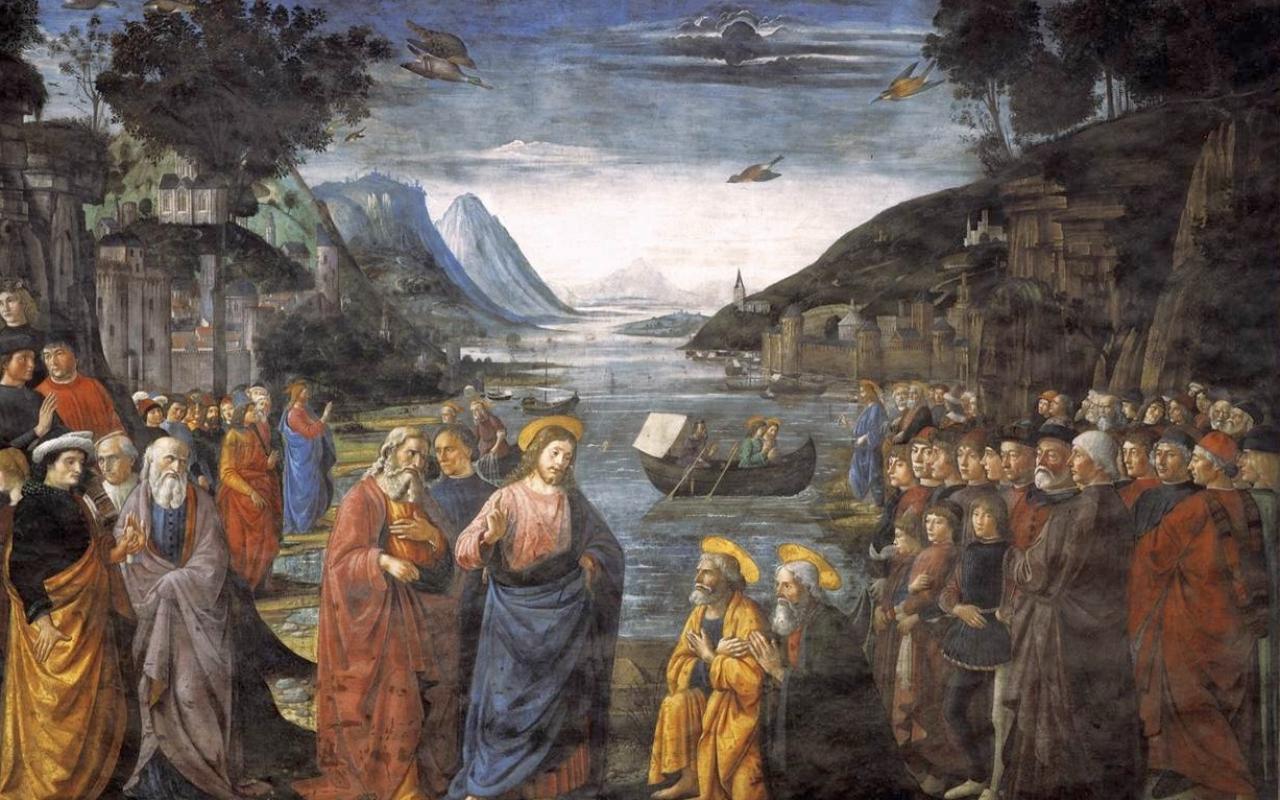
Christian faith puts us in relationship with the living God, and this relationship cannot be established simply by individual study and personal interpretation. What is the alternative?
In an age when many are seeking answers to religious questions and wonder where the presence of God can be found, it can be tempting to open a Bible to find direction. Depending on one’s religious background and place in life, however, reading passages from this sacred text might provide a word of comfort, or it might create greater confusion. If one is not well-versed in understanding the nature of God and the history of salvation, the Bible can seem overwhelming in its different literary genres, its depiction of God’s characteristics, and in the ways that Divine Revelation has unfolded throughout history.
Since the Church Fathers in the second century, theologians have spoken of the need to interpret the scriptures and the entire practice of Christianity according to the “rule of faith” (regula fidei). A framework of the content of Christian truth is needed as an interpretative lens in order to draw out the meaning of the Bible and see its individual parts within the context of the whole. The same rule of faith is needed if one is to understand the practices and customs of the Church, for without this context, our prayers, rituals, and disciplines can seem to an outside observer to be nostalgic, inaccessible, or even meaningless.
It may seem circular to say that one must have the rule of faith in order to begin to understand the faith, particularly when reading the Bible on one’s own initiative. Yet at its heart, Christian faith puts us in relationship with the living God, and this relationship cannot be established simply by individual study. A relationship with the triune God is developed in the context of relationships with other believers whose witness of faith, habit of worship, and exercise of holiness attracts one to a religious lifestyle that was previously unknown. When embracing this lifestyle, particularly in acquiring the grace that comes from the initiation sacrament of Baptism, one acquires a supernatural gift to be able to interpret over time the meaning of Christ’s redemptive work and how the various passages of the Bible all point to our Savior.
In his Letter to the Romans, St. Paul commends his audience for their conversion away from slavery to sin to a new life in Christ. He notes that they have become “obedient from the heart to the pattern of teaching” (6:17) to which they were entrusted. This “pattern of teaching” shaped their minds and hearts to that of the Church, allowing them to keep alive the memory of Christ and walk in ever-greater discipleship.
Christian faith comes by the grace of God and is acquired within the context of the Church. God can certainly instill His divine light directly into the hearts of nonbelievers with an inner illumination that calls them to Himself. Yet even this gift must be sustained and nurtured within a community, as one obediently follows the governance of the shepherds and enjoys the support and companionship of other believers. This lived expression of faith within the Church allows Catholics to deepen their understanding of God and detect how He is inviting us toward greater missionary zeal.
As one acquires the rule of faith, it becomes possible to see where authentic expressions of truth resound. Minds and hearts that have been molded within the Church can examine teachings and practices and ask, “Does this ring true? Does it fit with my beliefs? Or does this principle seem discordant to the normative teachings that I hold?” Having this lens of faith allows one to see the symphonic unity of the Church’s beliefs and practices, and how our doctrines stem from Christ, having been carried down successively by each generation.
In order to evangelize a new generation of believers, Catholics cannot simply point to Christ and tell others to acquaint themselves with Him on their own. Rather, our mission is to invite others into a community that seeks holistic formation, allowing others to become steeped in our lived customs and beliefs. Only by appropriating the Faith on this level will one be able to navigate through the confusion that this world offers in regard to religious truth. And only by acquiring this rule of faith will one be able to maturely carry the title of “Christian” and interpret their ever-changing surroundings by its light.

